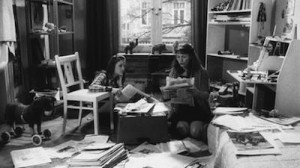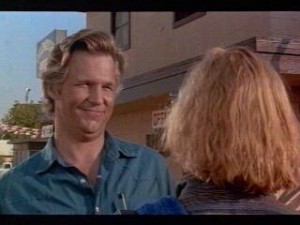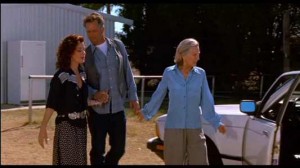OCCASIONAL WORK OF A FEMALE SLAVE (with Yehuda Safran, 1975)
Cowritten by Yehuda Safran (a lecturer in the philosophy of art with whom I was sharing a flat in Hamstead at the time), and published in the Winter 1974/75 issue of Sight and Sound. It seems fair to say that this review (from the 1974 London Film Festival) is in some ways more Yehuda’s than mine. Note: This film has more recently been called Part-Time Work of a Domestic Slave in some English-speaking countries. -– J.R.
‘Roswitha feels an enormous power within her,’ Alexander Kluge remarks offscreen at the outset of his latest feature, ‘and cinema teaches her that this power exists.’ The task of making the invisible visible is essentially the project of a director more concerned with social and political history than with film history, who seems to regard his work as a translation of ideas into sounds and images rather than the other way round. What matters is what the words and images ‘say’ and imply in relation to each other -– not their independent formal qualities, but their capacity of modify and explicate a complex experience.
What do Kluge’s opening words say and imply? That film is a means of translating potentiality into actuality, feeling into thought, experience into understanding –- the very problem that Roswitha Bronski (Alexandra Kluge, the director’s sister) is struggling to cope with over the film’s duration. Read more



